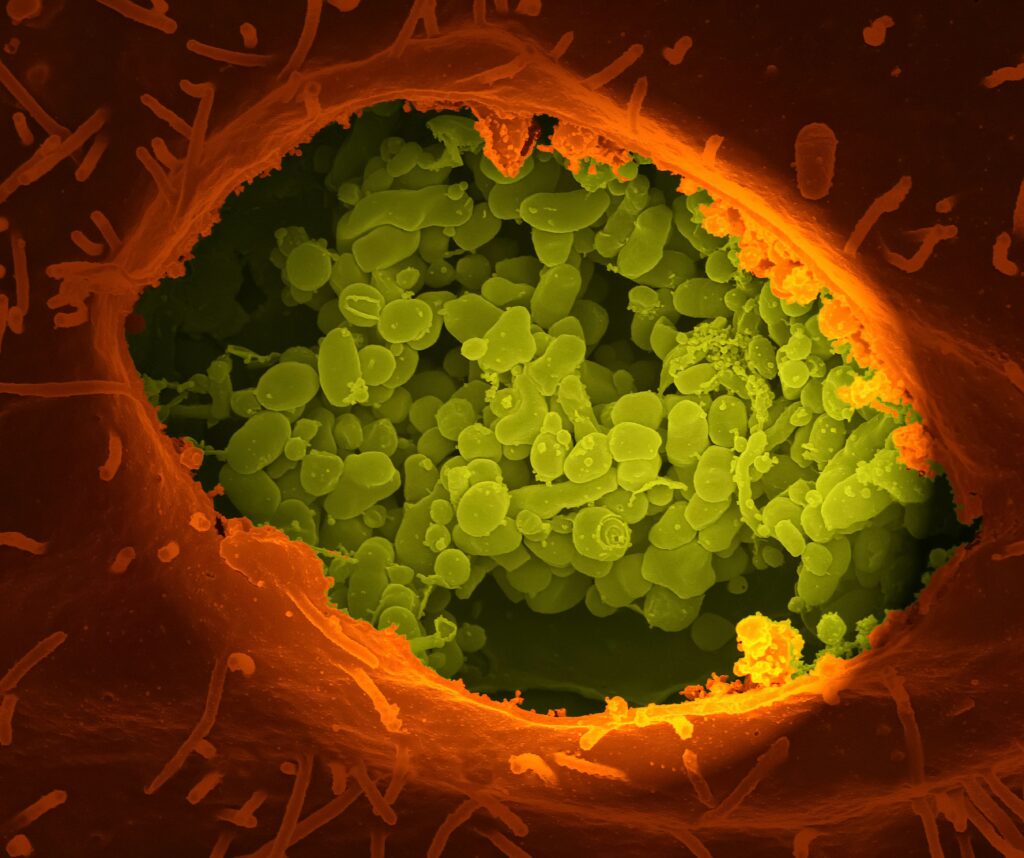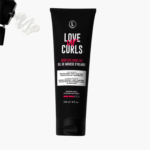Table of Contents
Introduction to Natural Skincare for Acne
Acne is an ailment that transcends age and gender, affecting a vast majority of us at some point in our lives. With the ever-growing interest in natural nad holistic well-being, it becomes paramount to explore the gentle yet potent world of natural skincare. The beauty of a natural skincare routine for acne lies in its approach – it’s not just skin deep. It encompasses an understanding of the body’s internal mechanisms, which reflect externally on our skin.
Evaluating Your Skin Type: The First Step to a Tailored Natural Skincare Routine for Acne
The journey to a clear, healthy complexion begins with a steadfast understanding of your unique skin type. This knowledge is the critical first step in tailoring a natural skincare routine for managing acne effectively – after all, skincare is deeply personal, and what works for one may not work for another. Here’s a condensed exploration of how to evaluate your skin type as you embark on clearing acne the natural way:
Recognizing the Five Skin Types

Normal Skin: This is the skin type that strikes a balance between oiliness and dryness, not veering too far in either direction. If your skin feels neither tight after cleansing nor excessively shiny during the day, you’re likely in this category.
Oily Skin: Characterized by an increased amount of sebum production, oily skin often has a shiny complexion with larger, visible pores. its more prone to blackheads, whiteheads, and other forms of acne.
Dry Skin: If your skin often feels tight, shows signs of flaking, and appears dull, it’s likely dry. DRy skin can still develop acne through clogged pores and trapped sebum beneath dry surface cells.
Combination Skin: A mix of oily and dry, usually with the T-zone (forehead, nose, and chin) being more prone to oil and the cheeks remaining dry or normal.
Sensitive Skin: This skin type reacts to a variety of external factors with redness, itching, or dermatitis. Sensitive skin requires careful product selection to avoid exacerbating acne or causing irritation.
Identifying Your Skin Type
To determine your skin type, you can perform a simple cleanse test. Clean your face with a gentle cleanser, pat dry, and leave it bare for about an hour. Afterward, press a tissue to different areas of your face. The presence or absence of oil can help you understand your skin type. You can also observe how your skin feels throughout the day and how it reacts to various products or weather conditions.
Tailoring Your Natural Skincare Routine for Acne
With knowledge in hand, you’re better positioned to select natural ingredients and products that align with your skin’s needs. For instance, oily skin can benefit from light, oil-free moisturizers and clay masks that absorb excess sebum. Ingredients like tea tree oil can be marvelous for its antibacterial properties.
Dry skin, on the other hand, will be grateful for hydrating ingredients like hyaluronic acid, found naturally in various fruits and vegetables, and soothing oils like avocado, which can help combat acne without over-drying the skin.
Combination skin will sway towards a split approach, addressing oiliness and dryness separately and perhaps even using different products on different areas of the face to maintain balance.
As for sensitive skin, the mantra is “less is more.” Gentle, anti-inflammatory ingredients such as aloe vera and chamomile not only calm the skin but also address redness and acne without irritating the skin further.
Evaluating and understanding your skin type is a fundamental step in the creation of your natural skincare routine for acne. By aligning your approach with your skin’s unique characteristics, you set up a regime that is as responsive as it is restorative. This paves the way for a relationship with your skin that is nurturing, attentive, and – most importantly – rooted in the natural wisdom that celebrates your individual skin’s needs.
Understanding the the Root Causes of Acne: Setting the Foundation for Your Natural Skincare Routine
Embarking on a natural skincare routine for acne calls for more then just topical solutions; it’s about delving into the myriad root causes that contribute to its formation. Acne, in its essence, is not solely a superficial concern but a mirror reflecting the internal dynamics of our body. Deciphering these underlying factors is crucial in cultivating a holistic approach to acne treatment and prevention. Here is a concise exploration of these root causes:
Hormonal Imbalances

One of the primary instigators of acne, especially in adolescents and women, is hormonal fluctuations. Androgens, such as testosterone, can cause the sebaceous glands to enlarge and produce more sebum, which can clog pores and lead to acne. Women might experience acne flares around menstrual cycles, pregnancy, or due to conditions like polycystic ovary syndrome (PCOS). A natural skincare routine can incorporate ingredients with anti-androgenic properties, such as green tea, which can help balance hormone levels.
Diet and Nutrition

The adage “You are what you eat” holds true when it comes to skin health. Diets high in refined sugars, dairy, and saturated fats can exacerbate acne. These foods can trigger inflammatory responses or affect hormonal balance, leading to increased sebum production and clogged pores. Incorporating anti-inflammatory foods rich in omega-3 fatty acids, antioxidants, and vitamins can combat inflammation and support skin health. Think berries, nuts, seeds, and leafy greens to nurture your skin from the inside.
Stress

Psychological stress doesn’t just affect your mental health; it also has a palpable impact on your skin. Stress stimulates the production of cortisol and other hormones, which can ramp up oil production and inflammation, paving the way for acne. Natural strategies to manage stress — such as meditation, yoga, and adequate sleep — can therefore indirectly benefit your skincare routine by reducing the stress-induced exacerbation of acne.
Genetics

Your genetic makeup has a significant say in your skin’s propensity for acne. If your parents had acne, you’re more likely to develop it as well. Genetics can influence how your skin responds to hormones, how much sebum it produces, and how easily your pores get clogged. While we cant change our genes, understanding this influence can encourage a more forgiving and patient approach to skincare.
Environmental Factors and Lifestyle Choices

External factors, including high humidity, pollution, and certain cosmetic products, can exacerbate acne. These elements can clog skin pores or introduce bacteria to the skin, leading to breakouts. Similarly, lifestyle choices like smoking can impair wound healing and make acne scars harder to heal. Emphasizing non-comedogenic, natural skincare products, and protecting the skin from environmental stressors plays a vital role in managing acne.
Gut Health

Emerging research highlights a strong link between gut health and skin conditions, including acne. Dysbiosis, an imbalance in gut bacteria, might trigger inflammation throughout the body and influence acne. Incorporating probiotic-rich foods like yogurt, kefir, and fermented vegetables can support a healthy gut microbiome and and potentially improve skin health.
Understanding the root causes of acne paves the way for a more informed and holistic approach to your natural skincare routine. It’s about looking beyond the surface, identifying the internal factors at play, and addressing these with a combination of dietary, lifestyle, and topical strategies. By embracing a comprehensive viewpoint, you lay a solid foundation for not only clearer skin but also overall well-being.
The Role of Natural Oils in Your Acne Skincare Routine: Balancing and Healing
The mere mention of oils as a part of an acne skincare routine may take you by surprise. For years, weve been conditioned to think that oil is the enemy of acne-prone skin. Yet, when incorporated wisely, natural oils can be formidable allies, bringing balance and healing properties. Here’s an insightful look at how selected natural oils can play a crucial role in your acne skincare regimen:
Understanding the Science of Oils and Acne
To debunk the myth, it’s crucial to understand that not all oils are comedogenic, meaning that they don’t necessarily clog pores. In fact, some oils can mimic our skin’s natural sebum, tricking our glands into producing less oil, while others can provide anti-inflammatory and antimicrobial benefits, both crucial in fighting acne.
Jojoba Oil: The Balancing Act
Jojoba oil is remarkably similar to the sebum our skin naturally produces. Because of this, it can help regulate oil production, sending signals to your oil glands to slow down when enough moisture is present. This can prevent pores from becoming excessively oily and reduce the risk of clogged pores that lead to acne.
Tea Tree Oil: The Antimicrobial Powerhouse
Tea tree oil is renowned for its antimicrobial properties, which can help keep acne-causing bacteria at bay. When diluted appropriately, it can be applied to the skin to help disinfect and dry out pimples, making it a suitable spot treatment for blemishes.
Argan Oil: teh Non-Greasy Moisturizer
Argan oil is a non-greasy oil that is high in linoleic acid, which helps to soothe inflamed skin and and reduce redness. It’s also rich in vitamin E, an antioxidant that can protect the skin from damage caused by free radicals, which can exacerbate acne.
Rosehip Oil: The Scar Healer
Rosehip oil, another non-comedogenic option, is often lauded for its scar-healing benefits. It’s rich in essential fatty acids and vitamins that promote cell turnover and can reduce the appearance of acne scars over time.
Evening Primrose Oil: The Hormonal Helper
Evening primrose oil contains gamma-linolenic acid (GLA), an omega-6 fatty acid that can be beneficial in treating hormonal acne. GLA can help reduce inflammation associated with acne and has been found to alleviate skin lesions and improve overall skin texture.
The Importance of Patch Testing
Always conduct a patch test when introducing a new oil into your routine, particularly if you have sensitive or acne-prone skin. Apply a small amount of the oil to a discreet area and wait 24-48 hours to ensure there’s no adverse reaction.
Moderation and Application
The key to incorporating oils into your acne skincare routine is moderation and proper application. Oils should be used after water-based treatments and lotions but before heavier creams. For acne-prone skin, using a few drops of oil is often sufficient too see benefits without risking overuse.
Natural oils can have a profound impact on an acne-prone skincare routine when chosen and used correctly. These oils offer a variety of functions from balancing oil production to healing scars and could be game-changers in achieving clearer skin. Harnessing their properties can lead to a more balanced, healthy-looking complexion and an enhanced skin barrier function.
Choosing the Right Natural Exfoliation Methods for Acne-Prone Skin: Gentle and Effective Practices
Exfoliation is a transformative step in any skincare routine, especially for acne-prone skin. It can assist in unclogging pores, removing dead skin cells, and promoting cell renewal. However, the challenge lies in choosing a method that is both gentle and effective, reducing the risk of irritation and further outbreaks. Here’s a comprehensive guide to selecting the right natural exfoliation methods tailored for acne-prone skin:
Understanding the Types of Exfoliation
Physical Exfoliation: This method involves manually scrubbing the skin with a substance or tool. For acne-prone skin, this can sometimes be too harsh, causing micro-tears and aggravating acne. However, gentle options do exist.
Chemical Exfoliation: Uses natural acids to dissolve dead skin cells. These can be more gentle and effective for acne-prone skin, as they dont require physical rubbing that might irritate active acne.
Gentle Physical Exfoliants for Acne-Prone Skin
Oatmeal: Ground oatmeal is an excellent gentle exfoliant for sensitive, acne-prone skin. Its saponins work to cleanse skin, and it contains anti-inflammatory and antioxidant properties that soothe irritation.
Rice Powder: Rice powder or finely ground rice is a gentle abrasive that can help to brighten complexion and reduce hyperpigmentation, making it suitable for acne scars.
Natural Chemical Exfoliants
Alpha Hydroxy Acids (AHAs): AHAs like glycolic acid (derived from sugarcane) and lactic acid (found in sour milk and tomatoes) help in the shedding of dead skin cells and increase cell turnover. THese are water-soluble acids ideal for surface level exfoliation.
Beta Hydroxy Acids (BHAs): Salicylic acid is the most common BHA, naturally found in willow bark. It’s oil-soluble, which allows it to penetrate deeper into the pores, making it highly effective for oily and acne-prone skin types.
Fruit Enzymes: Enzymes from fruits like papaya (papain) and pineapple (bromelain) offer a milder form of chemical exfoliation. They can break down keratin in dead skin cells, facilitating a smoother and clearer complexion without harsh irritation.
Guidelines for Exfoliation
Patch Test: Always patch test a new exfoliant to ensure your skin doesn’t react negatively.
Frequency: Start with once a week, gradually increasing as your skin adapts, without exceeding two to three times a week to prevent over-exfoliation.
Follow Up with Moisturizer: Exfoliation can be drying. Follow up with a hydrating, non-comedogenic moisturizer to maintain skin’s moisture barrier.
Sun Protection: Exfoliated skin is more susceptible to UV damage, making sunscreen a crucial step every morning, especially after exfoliating.
DIY Exfoliant Recipe
For a simple, homemade exfoliant, mix ground oatmeal with honey and a small amount of water to form a paste. Honey has antibacterial properties, making it a premium choice for acne-prone skin. Gently massage onto the face in circular motions, then rinse with warm water.
Selecting the right natural exfoliation method can dramatically improve the health and appearance of acne-prone skin. By understanding the different types of exfoliation and integrating them gently into your skincare routine, you can achieve clear, glowing, and healthy skin. Remember to listen to your skin’s needs, adjust the frequency of exfoliation accordingly, and nurture your skin with love and patience.
Natural Ingredients That Combat Acne Effectively: Harnessing Earth’s Bounty
The sword against acne isn’t always forged in a lab; sometimes, it’s grown in the earth. Nature offers a legion of weaponry in the form of natural ingredients that have shown efficacy in the battle against acne. HEre’s a deep dive into some of nature’s best soldiers that stand ready to assist in clearing your complexion:
Green Tea: Packed Packed wtih catechins, green tea is a powerful antioxidant that reduces inflammation and inhibits the growth of acne-causing bacteria. It also contains polyphenols that can help reduce sebum production, which can decrease the likelihood of developing acne.
Honey: As an antibacterial and anti-inflammatory agent, honey is a true ally for acne-prone skin. Its wound-healing properties also make it excellent for treating and preventing acne scars.
Aloe Vera: This tropical plant soothes the skin, reduces inflammation, and is gently antibacterial. Aloe vera gel can help heal small wounds and calm down flare-ups, making it a soothing ingredient for acne treatment.
Witch Hazel: Containing tannins that have astringent properties, witch hazel can effectively dry out acne blemishes and shrink pores, as well as reduce inflammation and soothe the skin.
Tea Tree Oil: Known for it’s antimicrobial properties, tea tree oil can be a potent treatment for acne when diluted properly. It helps disinfect the skin and battles both inflammatory and non-inflammatory acne.
Neem: Neem possesses natural antibacterial properties that are highly effective against the bacteria that cause acne. IT also helps in regulating oil production and purifying the skin.
Turmeric: The curcumin in turmeric is a bioactive compound with strong anti-inflammatory and antibacterial properties, making it excellent for reducing redness and bacterial proliferation in acne.
Apple Cider Vinegar: Containing malic acid, apple cider vinegar can act as a chemical exfoliant. It’s also believed to balance the pH of the skin, however, it must be used cautiously and diluted well to prevent skin irritation.
Willow Bark Extract: As a natural source of salicylic acid, willow bark extract penetrates pores to decrease oil secretion and shed dead cells and impurities from the skin.
Essential Fatty Acids: Ingredients like flaxseed oil or evening primrose oil, rich in omega-3 and omega-6, can help in rebuilding skin health, soothing inflammation from inside, and improving the skin’s barrier function.
Clay: Clays like kaolin and bentonite absorb excess oil, draw out impurities from the pores, and help in removing dead skin cells, which is incredibly beneficial for acne control.
Creating a Holistic Approach
While natural ingredients are compelling, they are part of a larger battle plan against acne. Implementing a well-rounded skincare routine, a balanced diet, and a healthy lifestyle significantly enhances the effectiveness of these ingredients.
Precautions with Natural Remedies
Not all natural ingredients suit everyone. Always perform a patch test to check for allergies and consult a medical professional before using natural remedies, especially if you have severe acne.
DIY Natural Acne Fighting Mask
Create a simple mask by mixing 1 teaspoon of green tea (cooled brewed or powdered), 1 teaspoon of honey, and a small amount of aloe vera gel to create a paste. Apply this mask for 10-15 minutes before washing off for an anti-acne treatment that harnesses some of the best natural ingredients.
The bounty of nature is often underestimated when it comes to treating skin conditions like acne. These natural ingredients, each with they’re own special properties, can be a valuable part of an effective acne treatment regimen. When used appropriately and with care, they can help you manage and even overcome acne, revealing clearer and healthier skin.
Conclusion
A natural skincare routine for acne incorporates the synergy of lifestyle, diet, and skincare. its an ongoing, evolving process that adapts to your skin’s needs and the fluctuations of your internal health. Remember, the most effective skincare routine is one that respects and works in harmony with your body’s natural processes.
FAQs
What are the key steps in a natural skincare routine for acne-prone skin?
A natural skincare routine for acne-prone skin should include gentle cleansing, toning, applying a natural anti-acne treatment, moisturizing, and protecting the skin with sunscreen during the day.
Can natural oils be used on acne-prone skin?
Yes, some natural oils like jojoba, tea tree, and rosehip seed oil can be beneficial for acne-prone skin. They can help balance oil production and possess antibacterial properties. It’s important to patch test any new oil before widespread use.
How often should I exfoliate if I have acne?
Exfoliation should be done gently and not more than two to three times a week for acne-prone skin. Over-exfoliation can irritate the skin and worsen acne.
Are there any natural ingredients that should be avoided on acne-prone skin?
Yes, some natural ingredients can be comedogenic or irritating for some individuals. Coconut oil, for instance, is known to clog pores for some skin types. Always consult with a dermatologist if you’re uncertain about an ingredient.
Will a natural skincare routine cure my acne?
While a natural skincare routine can significantly help manage and reduce acne, it may not “cure” acne for everyone. Acne can be caused by a combination of genetic, hormonal, and environmental factors, and sometimes medical treatment may be necessary.
How long until I see results from a natural skincare routine for acne?
Skincare results can vary, but it typically takes about 4 to 6 weeks to see noticeable improvements. It’s important to be patient and consistent with your skincare routine.
Can diet affect acne?
Yes, diet can influence acne. Foods with a high glycemic index or dairy products may worsen acne for some people. A balanced diet with plenty of water, fresh fruits, vegetables, and lean proteins can support skin health.
Is it safe to use DIY skincare treatments for acne?
While many DIY skincare treatments can be safe, it’s crucial to understand the properties of the ingredients being used and to patch test any new treatment to prevent adverse reactions. When in doubt, seek advice from a dermatologist.
What should I do if my skin reacts badly to a natural treatment?
If your skin reacts badly, discontinue use immediately and wash the area with cool water. If necessary, consult a healthcare professional for further advice, especially if you experience severe reactions.
How can I incorporate natural remedies into my existing acne treatment routine?
You can incorporate natural remedies into your routine by substituting synthetic products with natural alternatives one at a time. Monitor your skin’s response closely and adjust accordingly. Always consult a skincare professional before making significant changes to your routine.
Can stress management help with acne?
Yes, stress management can play a role in acne control. Stress can trigger or exacerbate acne outbreaks, so incorporating stress reduction techniques like mindfulness, exercise, and sufficient sleep can be beneficial.
Should I be using a toner in my acne skincare routine?
Yes, a gentle toner can be a great addition to balance your skin’s pH and remove any residual impurities after cleansing. Natural toners with ingredients like witch hazel, rose water, or green tea can be particularly helpful.







